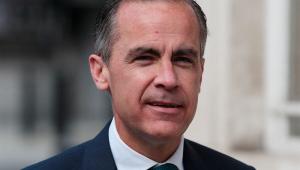The UK paid the sixth highest rate of fines in the EU over the past 10 years, but the PAC said Whitehall departments have only just “woken up” to this problem.
MPs said departments still aren’t doing enough to ensure they avoid repeating errors when spending money received from the European Commission.
Meg Hillier, chair of the PAC, pointed out that this “lack of practical concern” will anger many, regardless of their views on Britain’s EU membership.
“Government inaction on EU penalties is costing taxpayers dear. Money intended to support projects and programmes in the UK is instead being lost,” she said.
She continued to say it was “doubly frustrating” that departments seem to have exacerbated the problem by introducing further complexity to already complex EU programmes.
The committee highlighted a 2005-06 system implemented by the Department for Environment, Food and Rural Affairs to make payments under the EU’s Common Agricultural Policy.
The PAC said the department had picked the “most complex system available” to make the payments, resulting in a “damaging legacy”. The UK continued to make payment errors and incurred hefty penalties in the subsequent years.
It found that 21 countries have better records on penalties in agriculture and rural development funding.
While the UK incurred £2.70 in fines for every £100 received from the EU over the last ten years others have fared much better, including Lithuania (90p), Ireland (20p), and Estonia, Germany, Latvia and Austria, who all pay just 10p of penalties for every £100 received.
“As we have seen, these poor decisions have costly repercussions,” Hillier highlighted.
The private sector and UK universities have also had much more success in managing some of the main EU programmes.
Hillier said this points to some simple overall conclusions: “The government has much to learn, and the sooner it learns it the better.”
The PAC called on the Treasury to identify what has contributed to the relative success of the private sector and other member states, and take these lessons on board.
It added that the Treasury does not adequately hold departments to account, and recommended it publish a clear framework for using EU funds in the UK and report information on penalties incurred by each department in its annual statement on EU finances.
“As a priority, the Treasury and departments must identify the reasons they keep being penalised and take whatever action is necessary to rectify their mistakes.”
A Treasury spokesman commented: "Our local communities, farmers and world-leading universities are better off as a result of EU funding, and we're committed to ensuring this money is spent in the most effective way possible.
"We have made real progress to ensure every penny of EU funding gets to where it's needed, including by reducing agricultural penalties by almost two thirds since 2005, and leading the way in Europe to slash regulation and other administrative burdens."




















